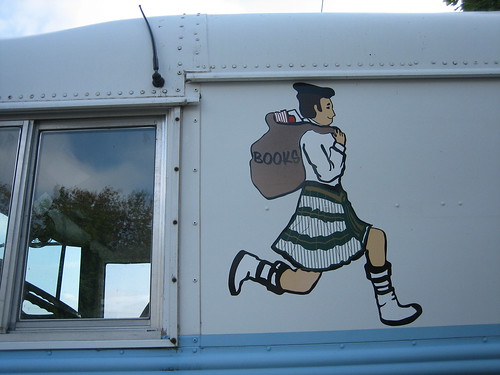It’s Banned Books Week and I’ve been discussing issues of access. Today the Boston Globe has this alternatingly irritating and sweet article this week Bookmobiles’ final chapter?. Forgetting for a moment that they broke the cardinal rule of using dippy headlines to downplay whatever seriousness the article might have had, this story talks about the demise of the bookmobile at the same time as it reports on the Beverly Public Library’s fundraising attempts to buy a new one. It seems, again, like a reporter has decided on the article they wish to write before actually learning about the topic and if I were the Beverly Public Library I’d be pretty annoyed that this article frames the bookmobile idea as something from a bygone era. The article doesn’t even have the wherewithall to cite any actual data preferring to allude to experts saying “Some blame skyrocketing gas prices. Others say bookmobiles became irrelevant in communities where residents can get easy access to other resources, such as the Internet.” The caption of the photo even puts the word “Bookmobile” in quotes as if it’s some weird made-up library word.
Do people really think that the Internet is replacing the bookmobile? I’d be much more inclined to think that increasingly mobile patrons and the increase of decent school libraries has done more for making the bookmobile less needed. We still have bookmobiles, part of the year, in rural communities here. Heck we have a mobile DMV vehicle that comes to remote towns to help people register their cars. Not everyone can drive the 45 minutes from here to the DMV, particularly if their car isn’t registered. The ALA is the voice of reason in this article, with Satia Orange quoted as saying “There are communities where bookmobiles are the primary place to get information, in rural areas where getting to a library is difficult or a low-income area where computers are not in every home, where people cannot afford to buy books.” Let’s keep in mind that if you’re rural enough to not have a nearby library you probably also don’t have nearby broadband.
